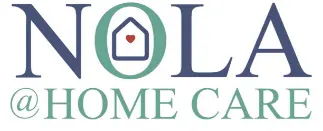It is often a heavy and emotional decision when you come to the realization that bringing in outside help may be what is best for your loved one. Small signs, like missed medications, repeated falls, and memory lapses, often string together to give you the general feeling that something just doesn’t seem right. You’re not alone in wondering whether it’s time to explore in-home senior care for your loved one. Knowing the signs a senior needs home care can lead you to make a confident and compassionate decision, with your loved one’s best interest at heart.
In this post, we will open up about the most common red flags to look for when deciding if in-home care is the best option to support both your loved one and your family.
What is In-Home Senior Care
Making an informed decision on your loved one’s behalf is important and helps bring peace to the decision-making process. In-home senior care provides professional assistance, specifically catered to the individual’s needs, in the comfort of their own homes. Daily tasks from bathing, meal prep, and dressing, to more specific concerns like specialized memory care and medical supervision are just a few of the services offered. NOLA @ Home Care compassionately provides in-home care for seniors in New Orleans and the surrounding area, allowing for seniors to gracefully age in place, as opposed to relocating to a nursing home or assisted living facility. Research from AARP consistently supports the idea that the strong majority of seniors prefer staying in the comfort of their own home.
7 Signs it May be Time for In-Home Senior Care
-
Changes in Memory or Behavior
Some of the early indicators of cognitive decline include forgetfulness, confusion, and personality changes. Often these signs are overlooked or dismissed as just “old age”, when in actuality they can be the early stages of Alzheimer’s or dementia. It’s not until safety becomes an issue that caregivers usually see them as red flags.
-
Frequent Falls
Have you noticed that your loved one frequently stumbles, loses their footing, or struggles to get in and out of chairs? Are they frequently marked with new bruises? Do they complain about dizzy spells? These are all indicators of mobility issues which can quickly lead to falls or other serious injury. In-home care providers can assist with daily tasks that support mobility by helping them walk and transfer locations.
-
Neglected Personal Hygiene
Everyday tasks that may have once seemed so simple can become a daily struggle. If you notice that your loved one often has an unkempt appearance, soiled clothes, body odor or other signs of struggle with their personal hygiene, they may benefit from assistance in this area. In-home care providers discreetly offer support for seniors while helping them maintain their dignity and independence.
-
Unpaid Bills and Disorganized Home
You may notice small changes throughout your loved ones home that suggest they are overwhelmed or forgetting routine responsibilities. Perhaps a once tidied kitchen now constantly has a sink overflowing with dishes, spoiled food fills the fridge, or mail sits unopened on the foyer table.
-
Medication Mismanagement
Seniors in need of support may struggle to properly administer their own medications. Common errors include forgetting to take medications or doubling up, both of which can have dangerous consequences. A caregiver can oversee the distribution of their medications, ensuring that they are properly taking them as prescribed by their physician.
-
Social Isolation or Mood Changes
Approximately 1 in 3 older seniors experience loneliness and isolation, leading to depression and anxiety. This can further compound the situation because depression leads to withdrawn behavior. Companionship is extremely important for the mental well-being of seniors, both emotionally and cognitively. Seniors who do not experience regular interaction and engagement can experience rapid decline. In-home caregivers not only provide companionship, but they also encourage engagement through conversation, games, or walks.
-
Family Caregiver Burnout
While this may be one of the most difficult and personal areas to talk about, it is a reality that just about every caregiver experiences at some point in their journey. It is important to note that burnout is nothing to be ashamed of. Feeling overwhelmed, exhausted, and irritable is common, and it’s also a sign that you may need to bring in outside help. In-home care supports the entire family, allowing your time with your loved one to be more meaningful and less stressful.
How In-Home Care Can Help
It is important to note that bringing in outside support does not equate to the loss of independence. In fact, it helps to support your loved ones independence for a longer period of time. In-home care has countless benefits, all of which are equally important to the overall safety, well-being, and independence of your aging seniors. It also benefits the whole family unit by bringing peace of mind and support to everyone involved. An individualized care plan, carried out by professional and compassionate caregivers, can support your family with:
- Household tasks
- Transportation and mobility
- Personal care and hygiene
- Cognitive stimulation and emotional well-being
- Overall family support
This allows family members peace of mind while supporting your loved ones desire to age in place.
When to Seek Assistance
Early intervention is always key! If you’re noticing any of these signs, it is important to reach out to a professional for an early assessment. Discuss any concerns you may have with a medical provider and, in conjunction with an in-home care provider, you can determine the best plan of action for your loved one. Appropriate support and decisions now will prevent crisis-based decisions later. Schedule a consultation today if you believe you would benefit from in-home care and compassionate support.
We understand all too well that making the decision to provide your senior with additional, outside support isn’t always easy. However, when the decision is well researched, informed, and with your loved one’s best interest at heart, it’s truly an act of love. Providing additional support before safety, health, and emotional well-being are in jeopardy is a responsible decision. You don’t need to walk this road alone, and neither does your loved one. Support is available and may just be the answer you’re looking for!












